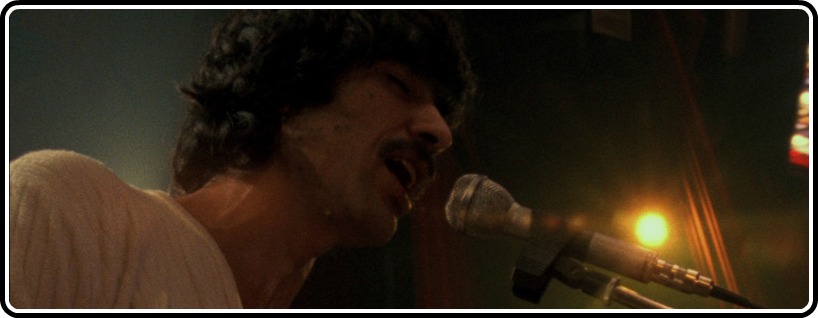If there is one thing that legendary filmmaker Martin Scorsese has a deeply rooted passion for outside of cinema and the art of filmmaking, it is music. Be it the various music documentaries that he’s spearheaded or his iconic use of source music throughout his pictures, Scorsese himself has become almost as synonymous with the aural arts as he has the visual, especially when the two blend together. With that in mind, it should come as no shock that when starting his World Cinema Project, the subject of a new Criterion Collection box set, that it was an unsung music documentary that began the series of restorations.
In 2007, Scorsese, with his team at the WCP and their partners at the Cineteca di Bologna, started restoring legendary seemingly lost bits of the great world cinema canon, and it all began with music. The first film the groups teamed up to restore was a breathtaking music documentary that not only oozes its own sense of lyrical aesthetic but feels like a film that a director like Martin Scorsese would have himself been honored to call his own.
Directed by Ahmed El Maanouni, Trances is, ostensibly, a concert documentary featuring interviews with and performances by the monstrously beloved Moroccan band Nass El Ghiwane. Best known for their profoundly rustic and natural aesthetic, the band’s blend of politically leaning lyricism and a traditional Moroccan trance sound not only turn them into one of the more interesting bands you’re likely going to be introduced to for quite some time, but also one of the few world music groups able to become considered on a level of a Rolling Stones (critics have often called them the Stones of North Africa).
And all of this is beautifully encased within Trances. Itself a warm and poetically shot concert film, Maanouni is the picture’s biggest star here, crafting a film so singular that attempting to describe it comparatively to a Western film is hard to attempt. Feeling in many ways like an African Gimmie Shelter, the film features performance footage that is as interested in the bombastic reactions from fans as it is in watching the music seemingly flow out of every pore of each band member, all while blending in some archival footage and some profoundly intriguing interview sequences. From discussions about a fallen former band member to a poetic dissertation on the nation’s first female resistant Aicha Kandicha, the interview sequences play as some of the more thematically interesting moments, while the performance footage is not only inspired by the vertie documentaries of its day, but the perfect type of fly on the wall aestheticism that allows the music here to truly become infectious and ultimately unshakable.
However, if the film does one thing, it is prove that this movement is forever timeless. Not only is Nass El Ghiwane’s music catchy and rhythmic, but the narratives being discussed within each song and its lyrics is one of political egalitarianism and social equality. At the time a product of a music scene starting to revert back to purely traditional sounds, particularly of traditional trance music, El Ghiwane’s sound and lyrics spoke to a generation dealing with the rule of a leader not too kind to political opposition. With Hassan II in power, Morocco became an interesting hotbed for political hostility, where dissidents were imprisoned and yet the arts, particularly cinema, began to flourish. This political climate directly influenced El Ghiwane, and its more than apparent within each not played by this startling goup.
And it is fitting that this is the first WCP restoration, as its one of the group’s most entrancing. With warm, inviting and lyrical photography, the new transfer on this Blu-ray is utterly superb, and the soundtrack is an absolute revelation. Pioneers of what is now known as “world music,” this group’s sound feels oddly vital today, and for any music lover this will be a hard documentary to really rival. Supplemental material here includes a nice, but again short, intro from Martin Scorsese, and one of the more dense video programs, including interviews with El Maanouni, producer Izza Genini, Scorsese and musician Omar Sayed. It’s a really informative and loving tribute to one of this breathtaking box set’s most enthralling and re-watchable masterpieces. Toss in a great essay from Sally Shafto (which is a must read to really understand the political context of this music, especially if you’re like me, a complete novice to this group and Moroccan politics of this time) and you have one sixth of a box that makes it, all on its own, worth every penny.



